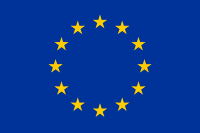Impact Lite Training & Community Building Taskforce
Impact Lite Playbook and guided learning
Informazioni su questo processo
This Task Force builds further on the outcomes of the original Impact Lite Task Force and aims to develop an Impact Lite methodology and to make this an interactive learning experience.
The Impact Lite training and community task force will develop an Impact Lite methodology based on the four phases of the Europeana Impact Playbook. This will distill the most essential elements of the four phases into one resource (PDF, interactive page, all tbc) and be accompanied by more interactive learning materials to help increase sector professionals' capacity in conducting impact assessments. In parallel, we want, by the end of the Task Force, to have an outline 'course' to take interested heritage professionals (and others) through a learning and capacity building journey where they'll learn and be able to use the core components of the Impact Playbook. This course should be light touch, easy to maintain and engaging for users. Examples could include an email course. We aim to invigorate the Europeana Impact Community through these actions.
The outcomes of the Task Force will support cultural heritage professionals and organisations in their digital transformation (building capacity in planning for impact). As with the first Impact Lite Task Force, the work will be performed in alignment with the work currently done in the inDICEs project, of which Europeana and Platoniq are project partners. In particular, this relates to the development of the InDICEs participatory platform and data analytics dashboard, whose functionality should benefit those applying Phase two of the Playbook. We will also align with the forthcoming Capacity Building Framework.
Task force goals
- Develop an impact lite playbook or resource
- Set out how a 'course' or structured way of working through the Impact lite playbook would work
- In the long-term, improve the capacity of heritage sector professionals working on impact and invigorate the Europeana Impact Community as a home to discuss all things impact.
Resources
Impact Playbook - four phases
- Phase one - design (PDF)
- Phase two - measurement (PDF and working version Google Doc - feedback and contributions welcome!)
- Phase three - narration (PDF and Google doc for feedback)
- Phase four - evaluation (draft to follow early May)
Impact resources
- Impact page on Europeana Pro: webinars, links to published impact assessments
- Phase one, two, three impact resources can be downloaded from Europeana Pro
- Standardised question bank (Phase two)
- Impact Community
- Impact group on LinkedIn
For reference
- Report of the first Impact Lite Task Force
- Miro board from Impact Lite Task Force #1
- Task Force page on Europeana Pro
Meeting dates 2022 - the first Wednesday of every month, 12.00 - 13.30 Amsterdam time (CET/CEST)
- 4 April (kick-off) ✔️
- 4 May ✔️
- 1 June ✔️
- 6 July✔️
- 24 August✔️
- 7 September✔️
- 2 November✔️
- 7 December (final meeting)
Task Force members
- Ad Pollé, Europeana Foundation
- Alexandra Angeletaki, NTNU UB (observer)
- Ana Aziza, Fondation du Patrimoine (observer)
- Ana Moreno, Europeana Foundation
- Chiara Marchini, German Digital Library
- Dafydd Tudur, National Library of Wales (observer)
- Danae Kaplanidi, PIOP
- Fred Truyens, KU Leuven (observer)
- Jason Evans, National Library of Wales
- Killian Downing, Dublin City University Library (observer)
- Marco Streefkerk, Anne Frank Museum/Independent (observer)
- Matilda Justinić, National and University Library in Zagreb
- Maya Drabczyk, Centrum Cyfrowe (observer)
- Mina Karatza, Post Scriptum (observer)
- Nadia Nadesan, Platoniq (co-lead)
- Nicole McNeilly, Europeana Foundation (co-lead)
- Nora McGregor, British Library (observer)
- Norman Rodger, University of Edinburgh
- Paweł Falkowski, Centrum Sztuki Współczesnej "Znaki Czasu" w Toruniu
- Samantha Morris, TU Dublin
- Shalen Fu, King's College London (observer)





Condividi: